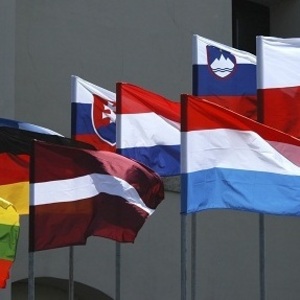EU Parliament ENVI committee approves biofuels cap, ILUC

July 11, 2013
BY The European Biodiesel Board
On July 11, the European Parliament’s committee for environment, public health, and food safety (ENVI) adopted its opinion on the European Commission’s legislative proposal on biofuels and ILUC.
Although in past months some members of the parliament and the whole energy committee started questioning unverified ILUC calculations and assumptions, the July 11 vote was still another step in the wrong direction as far as the understanding and the practical consequences of the insubstantial ILUC theory and figures are concerned. The lack of consistency and accuracy of ILUC factors and figures detailed in the text voted by the ENVI committee was even acknowledged publicly in the past several days by the U.S. International Food Policy Research Institute scientist that calculated them. In a rational world, no ILUC assumptions should be used for fixing figures in a legislative text even only for reporting use. A recent INRA study, very mediatized and performed by Prof. Gohin, has shown that only by varying one of the dozens of assumptions of ILUC models the final result can vary by 80 percent. Also very recently the European Commission itself recognized that biofuels policy has limited impacts on food commodity prices and the World Bank clearly indicated the central role of fossil fuels prices on other commodities’ variability.
The proposal of capping EU-made biofuels from energy crops to 5.5 percent (cutting by half the 10 percent objective entered into force just less than three years ago) is by far excessive in the light of the uncertainty of present ILUC theories as indicated above. Also it looks as completely vain to “book” twice 2 percent of the 10 percent target for applications, like renewable electricity for transport, which every observer with good sense knows will never deliver more than marginal consumption by 2020: in practice this means to sterilize twice 2 percent of the target, and it is unacceptable.
Advertisement
Advertisement
In this context, EBB welcomes the maintenance of necessary strong extra incentives for biodiesel from waste and residues (such as used cooking oils and rendered fats, which achieve up to 95 percent of GHG reductions) and insists on the logical and legitimate need to open advanced biofuel subtargets for them (without sterilizing 2 percent of the market for theoretical only electricity applications). Segmenting the market in various subtarget or creating discriminations among existing biofuels (such as illogical positive discrimination for ethanol) would only but create damages to the EU biofuels industry.
EBB insists on the positive outcome produced by biodiesel consumption in terms of security of supply in Europe and worldwide. If the vote of today would be adopted by the plenary it would further increase Europe’s imports of diesel from third countries (mainly from Mr. Putin’s Russia), while also reducing crop availability and EU protein food supply.
To date, European-grown rapeseed, representing the major biodiesel feedstock, contributes to reduce EU 70 percent dependence on imports of South American soybean proteins for animal feeds.
In this background, rather than limiting European biodiesel production, EBB strongly believes that appropriate agricultural mitigation practices should be implemented in relevant regions and activities to ensure the highest sustainability of agricultural products.
Advertisement
Advertisement
“The current debate is asking the wrong questions,” said EBB Secretary General Raffaello Garofalo. “Limiting biofuels production will neither solve hunger, nor will it prevent deforestation. ILUC modeling remains uncertain and the industry cannot be penalized on groundless assumptions.”
Finally postponing the implementation of the Fuel Quality Directive to 2025 and hampering the use of waste in biofuels put serious concerns on the relevance of any decarbonization ambitions, raising the doubt that the market lost by biofuels in the name of environmental laws and factor will be taken over by much less environmental friendly fossil fuels.
EBB calls for a balanced policy decision protecting investments made by the industry to reduce transport CO2 emissions. European biodiesel producers have shown their commitment to ensure greenhouse gas emissions savings from transport. They set an example in terms of sustainable management of land by abiding by strict mandatory criteria. A fair and long-term regulation would continue promoting research and development in advanced biodiesel from waste and residues, while fostering European employment. Europe has the opportunity to show its commitment to keep its innovative industry at pace, Garofalo declared. Reliance on ungrounded science would only have negative consequences for European jobs and no positive results in climate change policy.
Related Stories
California’s new specified source feedstock attestation requirement: A critical new compliance step for renewable fuel producers
As of July 2025, California’s SCFS requires renewable fuel producers using specified source feedstocks to secure attestation letters reaching back to the point of origin. This marks a significant shift in compliance expectations.
The public comment period on the U.S. EPA’s proposed rule to set 2026 and 2027 RFS RVOs and revise RFS regulations closed Aug. 8. Biofuel groups have largely expressed support for the proposal but also outlined several ways to improve the rulemaking.
The U.S. renewable fuels industry on Aug. 8 celebrated the 20th anniversary of the Renewable Fuel Standard. Federal lawmakers also marked the occasion with resolutions introduced in the House and Senate earlier this month.
Iowa farmers have a new market opportunity for their 2025 soybean crop. Landus is expanding its Clean Fuel Regulation initiative, made possible by recent policy changes expected to increase Canada's demand for liquid biofuel.
Klobuchar, Moran introduce bipartisan legislation to support biorefineries, renewable chemicals, and biomanufacturing
Sens. Amy Klobuchar, D-Minn., and Jerry Moran, R-Kan., on July 31 announced the introduction of the Ag BIO Act. The legislation aims to update the USDA’s loan guarantee program to better support biorefining projects.
Upcoming Events










